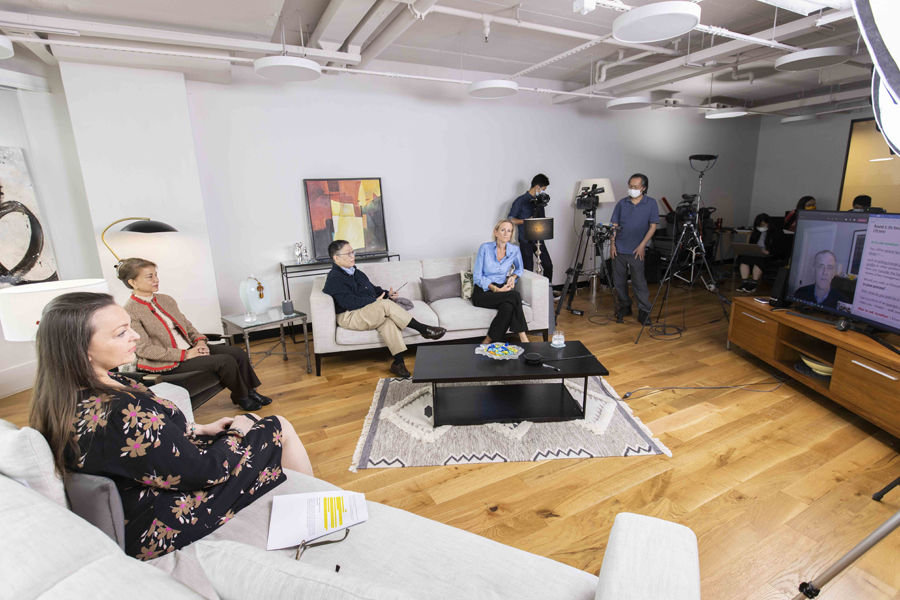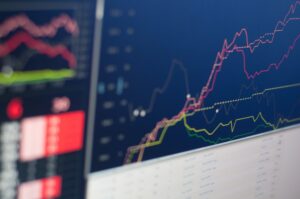The Benchmark Sustainable Wealth Forum is a knowledge exchange where industry leaders and winners of the Benchmark awards are featured. The Forum covers the financial eco-system and discovers the inside out of the providers’ practices that lead to a more sustainable industry through responsible and ethical investing in protecting the investors across multiple generations. The inaugural series covers the Winners at the Benchmark Wealth Management Awards and the Benchmark Fund of the Year Awards 2020. The topics covered in the Asset Management Series include Investment Propositions, Sustainability, and ESG approaches, Investor Protection and Global Opportunities and Risks.





Franklin Templeton -
In the middle of the Tech actions
This week's BENCHMARK Sustainable Wealth Forum featured Jonathan Curtis, the Senior Vice President and Portfolio Manager, and he is also the Franklin Equity Group research analyst.
UNIQUE ADVANTAGE
 Technology is forever moving and Franklin Templeton being in Silicon Valley benefits their investments a great deal. “It gives us tremendous access to the largest, most influential companies in the sector, but it also gives us great access to many of the fascinating emerging companies, both public and private. It allows us to stay on top of what’s happening and, of course, it gives us just tremendous access to the people who work at these companies", says Jonathan. He also explains that the fund’s investments aren’t just restricted in the valley, and having a large team, they can go farther and deeper than their peers with access to other internal teams globally.
Technology is forever moving and Franklin Templeton being in Silicon Valley benefits their investments a great deal. “It gives us tremendous access to the largest, most influential companies in the sector, but it also gives us great access to many of the fascinating emerging companies, both public and private. It allows us to stay on top of what’s happening and, of course, it gives us just tremendous access to the people who work at these companies", says Jonathan. He also explains that the fund’s investments aren’t just restricted in the valley, and having a large team, they can go farther and deeper than their peers with access to other internal teams globally.
“We think as experts in the tech sector, we know what matters the most. There are three big buckets in tech that are worth considering. Bucket one is software and services. Bucket two is the hardware and semiconductor-oriented companies of companies that are making sort of physical things. And then bucket three are the communications services firms, the firms that are operating the networks that are delivering our cell phone services and the like."
QUALITY IS EVERYTHING
“We do something that I think many of our peers struggle to do. We take a long-term perspective. If you look at the top 20 positions in this portfolio, they’ve all been in there on average for more than seven years. So we’re trying to understand what these businesses will look like at maturity", Jonathan explained.
Finding undervalued securities is only the first step. The team looks for a quality team and a solid governance structure of a company and their business ethics and diversity in the business.
The team has three qualitative screens to look for ideas, with the most crucial screen being “Quality." The team practically puts a brake on investing in companies rated B or below in their ESG rating framework. Next is “Growth," which refers to businesses in vast markets with multiple sustainable, predictable growth avenues. The third screen is valuation, where the team weights the lowest because it’s the noisiest part of the process.
“We rate each company across each pillar and then underneath each one of those pillars. We create very detailed materiality matrices in the tech sector and then driving each one of those assessments across each one of those sectors. But we are experts in these companies. We have direct access to them. We are frequently reaching out directly and engaging with these businesses and management teams to understand what are the things that matter and ultimately how do we assess these companies’ strengths and weaknesses across each one of these pillars," says Jonathan.
HANDLING RISKS
 Owning businesses of high quality with sustainable growth is one of the reasons why the fund recovers quickly from drawdowns during volatile periods.
Owning businesses of high quality with sustainable growth is one of the reasons why the fund recovers quickly from drawdowns during volatile periods.
“For effective risk management, first off, do good research, find high-quality businesses that have good growth prospects and are and are appropriately valued. Number two, we run a diversified portfolio. We have roughly 70 to 72 public companies in the portfolio. We have a handful of private companies in the portfolio. But our sizing of those names in the portfolio is a function of our confidence in our thesis. We also look at the weightings in each of the subindustries in technology, and we try and make certain we don’t have any subindustry weighted more than 30%".
The team is certainly aware of its benchmark and makes regular reviews quarterly. Companies that underperform consistently, with losses of more than 20% over one month to the three-month horizon, are candidates for stop-loss. “I don’t spend a lot of time thinking about my risk relative to the benchmark. I think more about my risk relative to the research I’ve done. I don’t track what my peers own, and I’m aware of how we are performing on key risk metrics around Sharpe Ratio, etc., versus our peers", says Jonathan.
TAKE ON ESG
 “Increasingly, firms are running their workloads on servers and in the public cloud and on machines that consume a lot of energy. So the main “Environmental" consideration, which we weigh 15%, is carbon emissions, and bigger firms like Microsoft have committed to being carbon negative. Under “Social," which we weigh 50%, the technology sector is very people-centric, so we care how the relationships with the software developers, the salespeople, etc., are working and whether data security could be at risk. Finally, 35% of our ESG weighting is on “Governance" where these businesses that operated ethically, are there diverse boards and is there dual-class share structures, etc.…?"
“Increasingly, firms are running their workloads on servers and in the public cloud and on machines that consume a lot of energy. So the main “Environmental" consideration, which we weigh 15%, is carbon emissions, and bigger firms like Microsoft have committed to being carbon negative. Under “Social," which we weigh 50%, the technology sector is very people-centric, so we care how the relationships with the software developers, the salespeople, etc., are working and whether data security could be at risk. Finally, 35% of our ESG weighting is on “Governance" where these businesses that operated ethically, are there diverse boards and is there dual-class share structures, etc.…?"
With “Social" being critical in the tech industry and China being a high growth target, the team takes an active engagement approach with Chinese potential investees to help them become better. The team will not invest in companies that are not aligned. “Ultimately, if a company rates ‘B’ in our framework, we’re not going to own it. There are many, many very high-quality businesses that we can own that aren’t ‘B’ rated, and we would avoid them if they didn’t match our criteria", expressed Jonathan.
GOING FORWARD
“We think the ample opportunity in technology is this idea of digital transformation. We believe we are in the very early days of every industry. Every business uses software and data to understand its customers. Their company processes better to improve those and then ultimately technology to radically transform how their companies and their industries operate with software and data really at the center of it. We're going to be looking for companies that are either the big digital disruptors in this trend or the enablers of firms like Franklin to go on this grand digital journey that's ahead for us”.
This episode is hosted by Elsa Pau, CEO of WealthAsia Group; with her co-hosts,
Agnes Tai, Director of Great Glory Investment Corporation,
Alexandra Tracy, President of Hoi Ping Ventures, and
Jo Murphy, Managing Director, Asia Pacific, the Chartered Alternative Investment Analyst Association.


